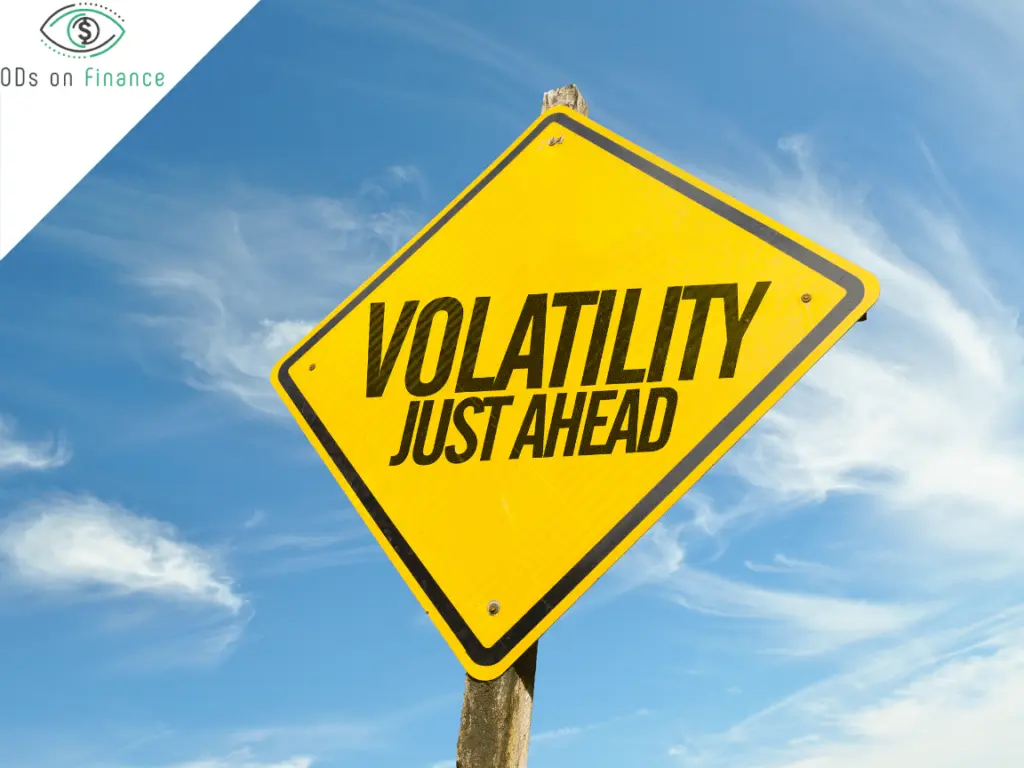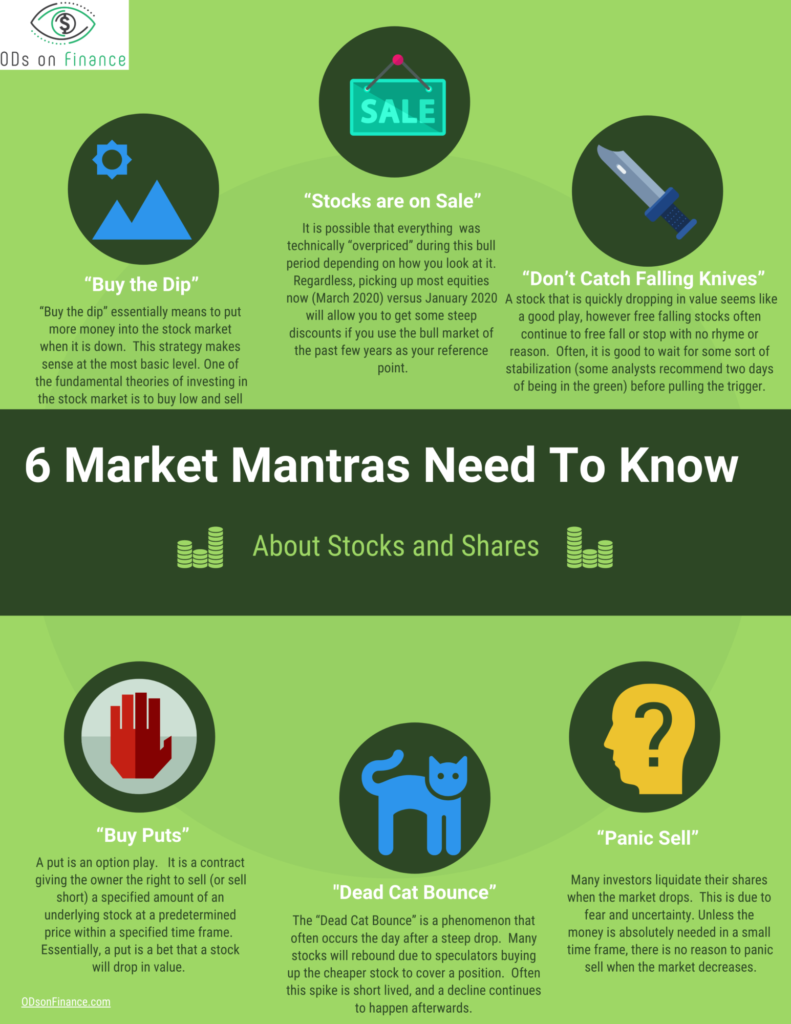Navigating Market Mantras During Volatility and Uncertainty

The perfect storm of the COVID-19 outbreak and the upcoming election has led to an extremely volatile market. March 16, 2020 marked the second largest single day loss by the Dow Jones Industrial Average, in the history of the US.
With the market down and heavily volatile, a few mantras regarding how to invest with the current market turmoil have been gaining steam on social media and financial blogs. As such, the co-founders of ODs on Finance (Dat Bui and myself), have been receiving question after question regarding these mantras and the truth behind them. Let’s dissect these mantras and analyze the pros and cons to each approach:
(1) “Buy the Dip”
“Buy the dip” essentially means to put more money into the stock market when it is down. This strategy makes sense at the most basic level. One of the fundamental theories of investing in the stock market is to buy low and sell high
However, how low does the market go? No one really knows. If you “buy the supposed dip” then the market dips lower, then did you really buy the dip?
(2) “Stocks are on sale”
Yes, stocks are on sale relative to prices seen in much of 2019 and 2020. One thing to consider with this outlook is a broader picture. We had a historical bull market run of nearly 11 years, which is more than double the average bull run of 4.5 years.
It is possible that everything was technically “overpriced” during this bull period depending on how you look at it. Regardless, picking up most equities now (March 2020) versus January 2020 will allow you to get some steep discounts if you use the bull market of the past few years as your reference point.
"To avoid catching a falling knife, often, it is good to wait for some sort of stabilization (some analysts recommend two days of being in the green) before pulling the trigger. Sudden drops should create caution before elation"
(3) “Don’t catch falling knives”
When a knife falls off the kitchen sink you have a chance of grabbing it by the handle and being safe or grabbing it by the blade and ending up in the ER. This analogy is often used with stocks. A stock that is quickly dropping in value seems like a good play, however free falling stocks often continue to free fall or stop with no rhyme or reason. Often, it is good to wait for some sort of stabilization (some analysts recommend two days of being in the green) before pulling the trigger. Sudden drops should create caution before elation.
(4) “Buy puts”
A put is an option play. It is a contract giving the owner the right to sell (or sell short) a specified amount of an underlying stock at a predetermined price within a specified time frame. Essentially, a put is a bet that a stock will drop in value.
Buying puts is a more advanced technique when it comes to approaching the stock market, and when compared to long term investing, it is much more of a gamble. We advise most investors that read our site to avoid buying contracts due to their nature. If you must indulge, please learn all you can about options including elements such as strike price and time decay.
"Buying Puts is a more advanced technique when it comes to approaching the stock market, and when compared to long term investing, it is much more of a gamble. We advise most investors that read our site to AVOID buying contracts due to their nature"
(5) "Dead Cat Bounce”
The “Dead Cat Bounce” is a phenomenon that often occurs the day after a steep drop. Many stocks will rebound due to speculators buying up the cheaper stock to cover a position. Often this spike is short lived, and a decline continues to happen afterwards. The “Dead Cat Bounce” has been seen twice since the COVID-19 outbreak happened. Be careful and wary of it when investing.
(6) “Panic Sell”
Many investors liquidate their shares when the market drops. This is due to fear and uncertainty. Unless the money is absolutely needed in a small time frame, there is no reason to panic sell when the market decreases. If you are investing for the long term, stay the course! Look to add to positions in a way that is not brash. Don’t sell simply because you are worried.
So what is the Conclusion here?
Honestly, it is up to you and your investing horizon. There is no right or wrong answer. If we really knew what the future of the market holds, we would all have more money than we know what to do with and you would not be reading this article. One thing we do advise is to do your due diligence and not follow a mantra or slogan just because it’s trending.
If you are young, then take the chance to buy into index funds and equities. However, do this in a responsible way. Just because the Dow has one of its worst days ever, does not mean it’s at its lowest. Dollar cost average your way down to hedge risks. And most importantly: always leave money in an emergency fund, especially if you have a family to care for.
If you are older, it is time to look at rebalancing your portfolio to an optimal weighing for your retirement years. Safety in your portfolio comes in the form of bonds and CDs. The return may be low, but the risk is also low. A cash pile good for a few years of expenses is also a good idea for retirees. This can be drawn from in times like this where equity investments take a tumble.
Whatever you decide, make an informed game plan about how you plan to build your portfolio. Emotions run high during times of volatility of uncertainty, so be confident in how you plan to approach your finances for the long term!
"If you are young, then take the chance to buy into index funds and equities... Just because the Dow has one of its worst days ever, does not mean it’s at its lowest. Dollar cost average your way down to hedge risks
If you are older, it is time to look at rebalancing your portfolio to an optimal weighing for your retirement years. Safety in your portfolio comes in the form of bonds and CDs"


Facebook Comments